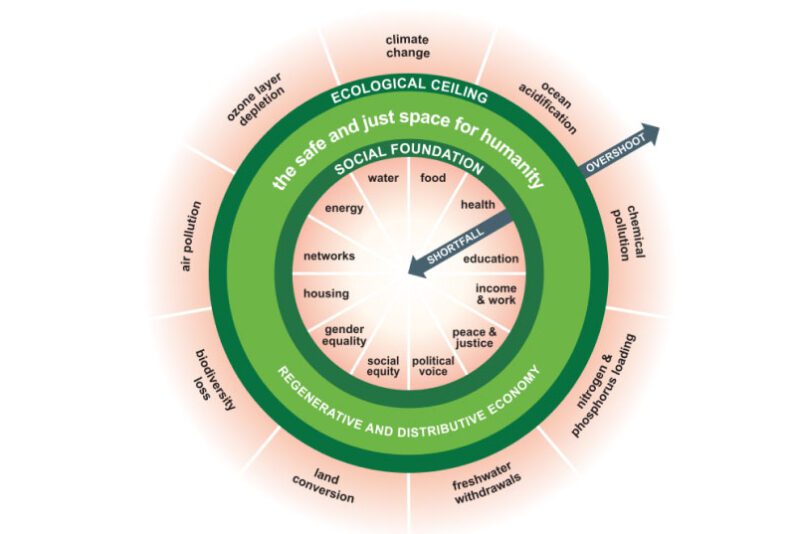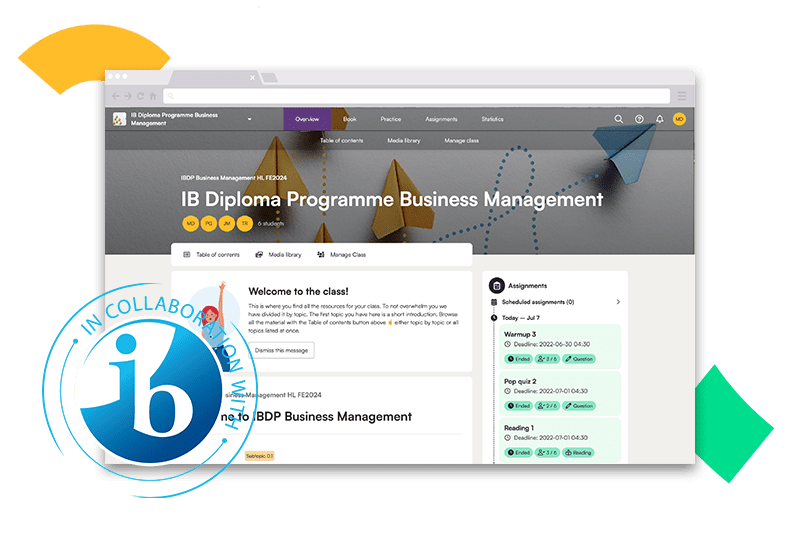A new approach in DP Business Management
The new resource for IB Diploma Programme Business Management has been fully released on the Kognity platform, ready for first teaching for the May 2024 exam. These materials were developed in collaboration with the International Baccalaureate, tapping into the latest thinking in Business Management in a challenging global, social and environmental context. In this article, lead author Jennifer Brandsberg-Engelmann explains the unique approach of the new book.
Those of you who are teaching the new DP Business Management course for the first examinations in May 2024 will notice a few key differences in the new syllabus. There is a reduced number of concepts: change, sustainability, ethics and creativity. There is also an exam paper focused on social enterprise, responding to society’s need for more responsible businesses.
When we saw those changes in the DP syllabus, we thought it was an ideal opportunity to tap into the latest thinking about the role of businesses in society. However, our authors wanted to make sure that students do not come away from the course thinking that social enterprise is a niche area of business. Rather, we wanted to instil the idea that ALL businesses have a responsibility to meet human needs and solve real problems within planetary boundaries.
So while following the syllabus closely, we tried to frame business activity with this responsibility in mind. It was a great opportunity to use ideas being discussed in Kate Raworth’s Doughnut Economics Action Lab (DEAL), related to regenerative and distributive business design. Regenerative business design means that businesses actively improve society and ecological systems, rather than merely doing less harm. Distributive business design involves businesses creating and distributing more of the value they generate to a wider range of stakeholders, rather than just to owners or shareholders.
Regenerative and distributive design principles are not explicitly mentioned in the DP Business Management syllabus, but the ideas are a natural extension of the direction the IB is taking in this course. I would like to highlight here a few ways in which this approach impacted the content in the book:
1. Doughnut Economics
Doughnut Economics is introduced in the first topic and is applied where possible across the subject. In relevant topics, we discuss how purpose, governance, networks, ownership and finance can inform regenerative and distributive business design (see Kate Raworth explaining regenerative and distributive business design).
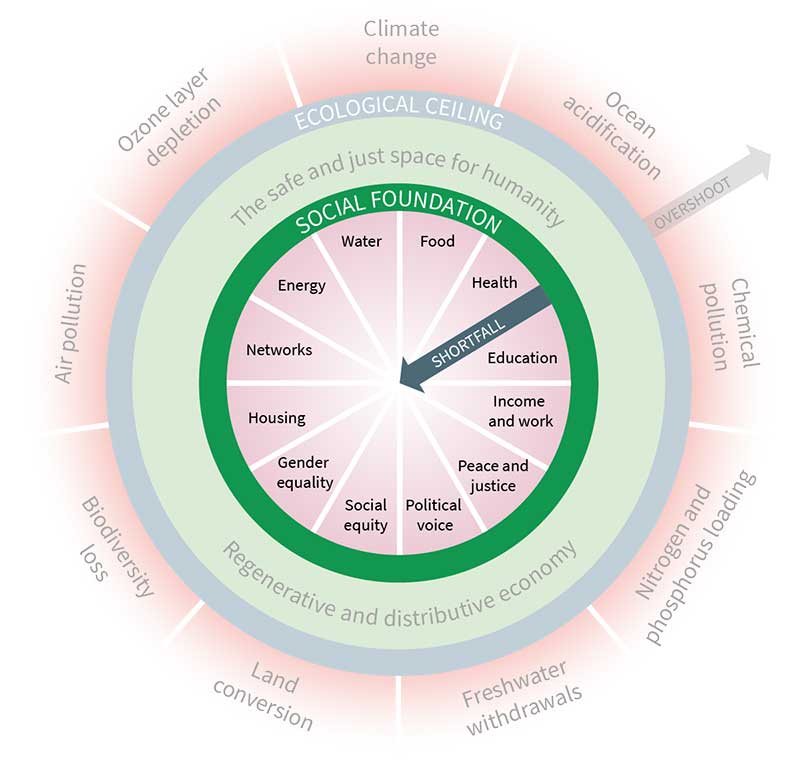
Credit: Kate Raworth and Christian Guthier. CC-BY-SA 4.0
2. Embedded economy
The first topic also introduces the idea of the embedded economy. The embedded economy model shows that economic activity between businesses and consumers is a subset of society. In turn, society is a subset of the natural environment. In this model, energy from the sun and natural resources are shown as inputs, and heat and waste are shown as outputs.
This differs from the circular flow of income model of the economy presented in the DP Economics course. In Economics, the economy is presented as a closed system, with society and the natural environment considered “externalities” and excluded from most analyses. In contrast, the embedded economy model presented in this resource enables students to see the dependence of business activity on society and the natural environment from the start.
The presentation of these conflicting models – the embedded economy in DP Business management and the circular flow of income in DP Economics – provides a great opportunity for exploration in Theory of Knowledge for students taking both courses.
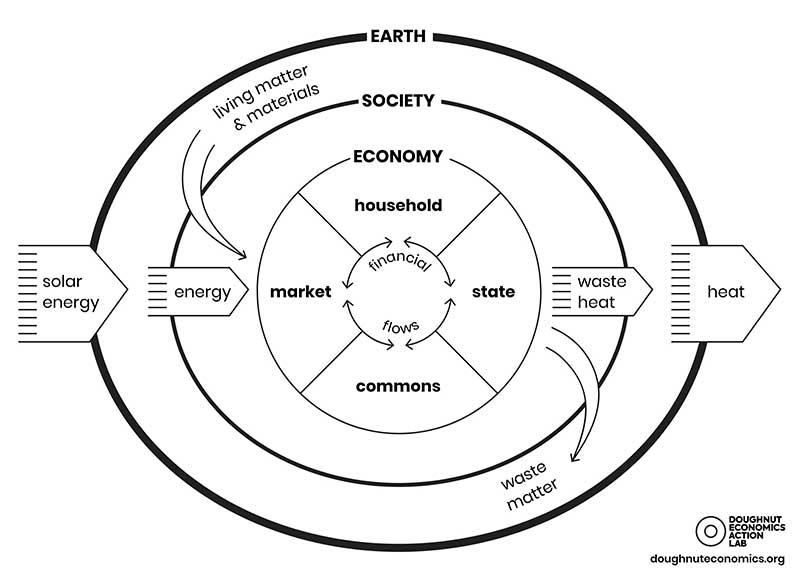
Credit: Kate Raworth and Marcia Mihotich. CC-BY-SA 4.0
3. Nature’s Unifying Patterns
The book also introduces the idea that businesses should operate more like nature, using Nature’s Unifying Patterns in biomimicry as a guide. Efficiency is not necessarily the only goal of business; resilience is also a priority. This involves, for example, fostering strong networks and reciprocal behaviour among diverse groups of stakeholders to cultivate strong business ecosystems.
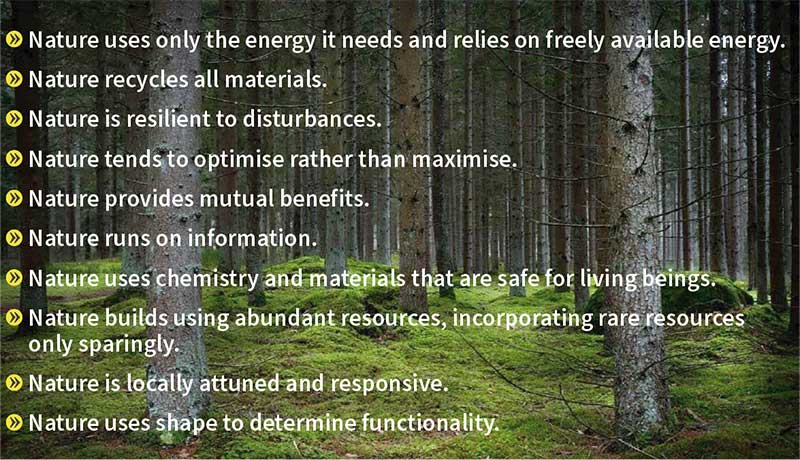
Recreated with the kind permission of the Biomimicry Institute
4. Value creation
The book explores the concept of value creation. We moved beyond previous thinking about value creation that focused solely on profit generation and profit maximisation.
The book points out that a variety of stakeholders create value for a business and they receive value from a business. When students have a more complex understanding of different stakeholder perspectives on value, they will be better prepared to explain how a business might be designed to be regenerative and distributive.
5. Growth
The growth objective is also challenged. While the book explains that growth can be important for businesses to reach break-even and generate profit, it also points out that excessive focus on growth has led to negative social and ecological outcomes. The dominance of traditional growth objectives is questioned. The idea of growth is also widened in the book to include the generative (or regenerative) enterprises.
Generative enterprises are businesses that grow and develop the ecosystem in which they operate by being generous towards others in their networks. They create opportunities for growth and development for stakeholders around them. Businesses can work to provide mutual benefits for themselves, for other stakeholders and for other businesses within their sphere of influence.
There are many examples of these relationships in nature. For example, a hummingbird feeds itself and pollinates flowers at the same time. This relationship helps both species survive and thrive. The same can be true for businesses that provide mutual benefits and support a healthy ecosystem. An example could be a local bakery that provides free baking lessons to the local community, strengthening ties with others and developing human knowledge and skill.
There are many more examples I could cite. But to sum up, we have taken the new DP Business Management syllabus content on social enterprises one step further, in order to help you foster a mindset around responsible business practice in your students. As far as we are aware, Kognity’s new DP Business Management subject is the first secondary school business resource to incorporate the ideas of regenerative and distributive business design throughout. We have embedded these important ideas, but we still aligned the content closely to the IB syllabus to support teachers and students in their exam preparation. It has all the technical updates and support on concepts, Theory of Knowledge, international-mindedness, terminology and exam preparation that you know and love from Kognity.
We hope you enjoy the new book!
Jennifer Brandsberg-Engelmann is a IB Diploma Programme Business Management teacher at Strothoff International School near Frankfurt, Germany. A long-time teacher and senior examiner for the IB Economics course, Jennifer leads a new Sustainability Action Lab at her school that promotes changemaking projects related to sustainability and offers courses in topics such as changemaking, biomimicry and sustainable fashion. Co-founder of the Frankfurt Doughnut Coalition, she has done curriculum work related to the Doughnut Economics model, and is passionate about regenerative and distributive business design.
Blog articles

